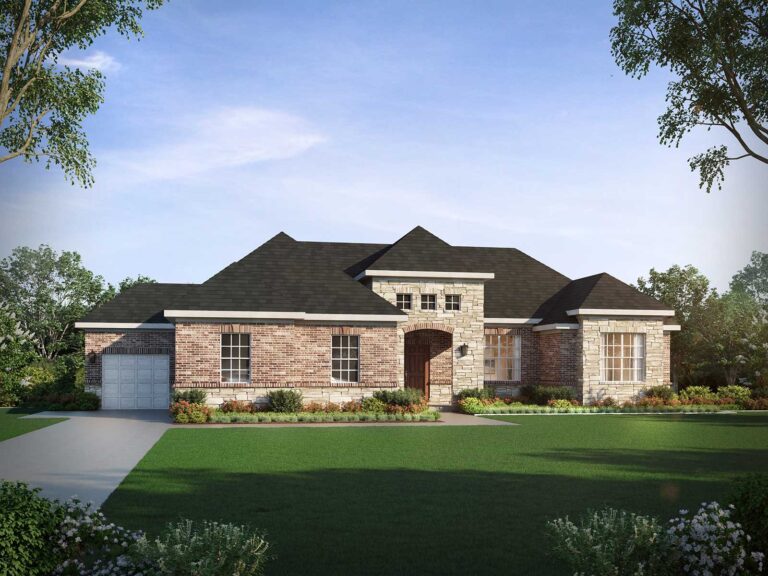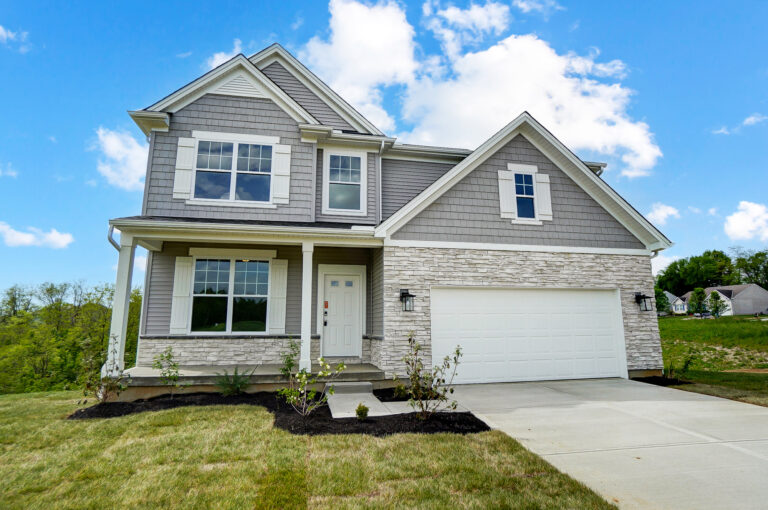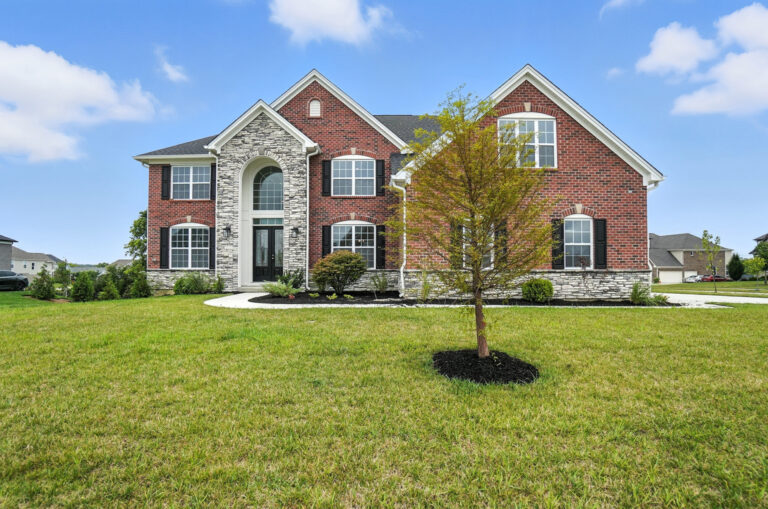
Production vs Custom Builder Showdown: Making the Right Choice [2025]

Josh Blatt
• 11 min read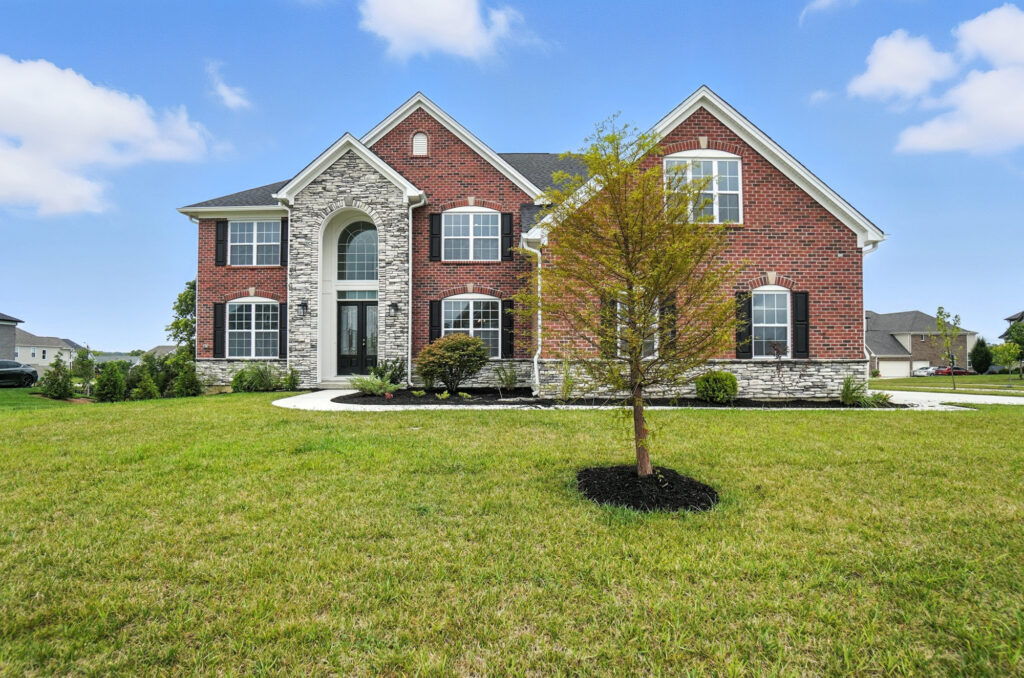
Production builders offer a faster, more affordable path to homeownership. These builders specialize in efficiency and consistency, delivering homes at accessible price points by constructing the same proven designs across multiple communities. Their standardized approach means construction time and costs stay predictable and manageable compared to custom alternatives. Choosing a Production Home can also enhance the overall experience.
Need to move quickly? Production builders sometimes have move-in ready homes available, getting you settled in as little as 30 days when timing matters most.
The volume approach works. Production builders construct homes on a larger scale, which drives down the cost per unit. With hundreds of homes built annually, these builders can offer predictable pricing that makes budgeting straightforward. The process stays streamlined too – fewer decisions, faster timelines, less complexity than custom construction, making a Production Home an attractive option for many buyers.
But efficiency comes with limits. You’ll have fewer options for personalization and design flexibility.
Whether you choose production or custom depends on what matters most to you. We’ve seen families thrive in both settings. This guide breaks down what defines each builder type, how they approach construction, what customization options you’ll actually have, and most importantly – how to decide which path fits your needs, preferences, and budget.
Ultimately, your choice may come down to whether a Production Home aligns with your lifestyle and financial goals.
Understanding Builder Types
This choice shapes everything about your home building experience. We’ve worked with both types of builders over the years, and each serves different needs.
What is a production home builder?
Production builders construct homes across planned communities using the same floor plans repeatedly. They purchase large tracts of land, develop subdivisions, and build multiple homes from a limited selection of designs. These builders operate on the “build it and they will come” principle – constructing homes before specific buyers are identified.
Most production builders offer personalization through preselected options for finishes, fixtures, and features. Their standardized approach means bulk purchasing power and efficient construction methods. You can typically choose carpeting, flooring, and kitchen features, but the fundamental design aspects like square footage and layout stay fixed. Production builders frequently construct dozens or even hundreds of homes annually.
What is a custom home builder?
Custom builders are the craftsmen of residential construction. We collaborate closely with clients to design and construct homes that match individual specifications exactly. Every detail gets tailored to the homeowner’s preferences, creating truly one-of-a-kind residences.
Custom builders typically work on land you already own rather than developing entire communities. Most limit their annual projects – usually fewer than 10 homes per year – to ensure careful attention to each build. This focused approach allows unlimited design flexibility. You control everything from architectural elements to doorknobs. The process involves extensive planning before construction begins, with builders treating clients as partners throughout the project.
Key differences in approach and scale
The core distinction comes down to philosophy: volume versus personalization. Production builders focus on efficiency and affordability through standardization. Custom builders prioritize uniqueness and craftsmanship.
Production builders benefit from economies of scale – more predictable timelines and costs. Custom projects need extensive planning, resulting in longer construction periods. You’re looking at 9-12+ months compared to production homes’ 3-6 month timeline.
Design flexibility differs significantly. Production homes offer choices within set parameters. Custom homes provide virtually unlimited options. Production builders develop master-planned communities with shared amenities, creating uniform neighborhoods. Custom homes stand out with distinctive character.
Cost and Timeline Considerations
Time and money drive most homebuilding decisions. We’ve worked with clients on both sides of this equation, and the differences between production and custom builders are dramatic.
Construction time: 3-6 months vs 9-12+ months
Timeline differences tell the whole story. Production builders finish homes in 5-6 months using their proven systems and efficient methods. Some even have homes ready for immediate move-in – perfect when you need to be settled in 30 days.
Custom homes require patience. The National Association of Home Builders reports construction periods averaging 10-16 months. Every detail gets planned, designed, and crafted specifically for you, which takes the time it takes.
Upfront costs: Fixed packages vs variable pricing
Production builders offer fixed-price contracts. Once you make your selections, costs stay locked. Their buying power and standardized designs can save you 15-30% compared to custom homes of similar size.
Custom builders work differently. Some offer fixed pricing, others use cost-plus contracts where you pay actual costs plus their fee. Cost-plus can feel transparent, but supply chain issues and inflation have made this approach riskier recently.
Budget predictability and hidden expenses
Production homes come with their own surprises. Upgrades beyond standard packages add up quickly. Don’t forget HOA fees either.
Custom projects? Expect the unexpected. Site preparation, utility connections, design changes – they all cost extra. Smart money sets aside contingency funds of 7-10% for custom builds.
Production homes work best when you want straightforward financing and quick move-in dates. Custom homes give you exactly what you want, but budget certainty isn’t part of the package.
Customization and Design Flexibility
Design flexibility separates these builder types more than any other factor. You’re choosing between convenience and personalization – both have their place depending on your vision for home.
Floor plan options: Pre-set vs fully custom
01
Production builders offer a select collection of floor plans designed for broad appeal and construction efficiency. You’ll choose from predetermined layouts with minimal structural changes permitted.
Custom builders create designs from the ground up based entirely on your specifications. Want a kitchen that opens to the family room? Need a home office with separate entrance? Custom designs let you determine room configurations, ceiling heights, and layout details with virtually no limits beyond budget and building codes.
Material and finish choices: Limited vs unlimited
02
Material selection follows the same pattern. Production builders provide curated packages where you can choose finishes like flooring, cabinetry, and fixtures – but within their predetermined selection.
Custom builders let you select every single detail. We’re talking doorknobs, deck materials, tile patterns, light fixtures – everything. As one expert notes, “A custom home allows the homeowner to have complete control over the design and features of the home”.
Architectural freedom and design control
03
Production homes typically share similar external appearances across the neighborhood. Limited structural customization means visual consistency.
Custom builds offer complete architectural freedom. You can create distinctive homes that reflect your personal style and stand as unique expressions of who you are. This explains why production neighborhoods often look cohesive and uniform, while custom homes each tell their own story.
Community, Amenities, and Lifestyle
Your home is more than just a structure – it’s the center of how you live. Production and custom builders create completely different community experiences that shape your daily routine and long-term satisfaction.
Master-planned communities and shared amenities
Production homes come with built-in lifestyle perks that most custom homeowners can’t access. These communities feature resort-style pools, playgrounds, clubhouses, lakes, workout facilities, hiking trails, tennis courts, and occasionally golf courses. Luxury developments take it further with concierge services, golf simulators, and state-of-the-art fitness complexes.
We’ve watched families fall in love with these amenities. The convenience of having everything at your doorstep creates a lifestyle many buyers specifically seek when choosing their builder type.
Neighborhood integration: cookie-cutter vs unique
The visual character differs dramatically between these approaches. Production homes create architectural harmony within neighborhoods, with designs that complement each other and maintain consistent property values. Custom homes stand apart as individual statements reflecting their owners’ personalities and style preferences.
Many families prefer the cohesive suburban feel of production communities. Properties in these developments sell approximately 9% faster nationwide – buyers appreciate the predictable neighborhood aesthetic and established community feel.
HOA rules and community events
Nearly all production communities operate under homeowner associations that maintain amenities, enforce community standards, and preserve property values. But these associations do more than maintain landscaping. Many employ lifestyle directors who organize social programming throughout the year.
Think holiday celebrations, book clubs, gardening activities, movie nights, and seasonal festivals. These events build genuine connections between neighbors – something 95% of Americans say they want more of in their lives. The community infrastructure makes it happen naturally.
Conclusion
Your choice between production and custom builders comes down to what matters most to you and your family. We believe every family deserves a home that fits their unique needs, whether that’s efficiency and community or personalization and distinctive design.
Production builders excel when you value predictability, want to move quickly, and appreciate community amenities. These builders have perfected the art of delivering quality homes efficiently. If you’re drawn to shared spaces, organized activities, and a cohesive neighborhood feel, production communities often provide exactly that environment.
Custom builders become the right choice when your vision requires something truly unique. They partner with you to create homes that reflect your personality and lifestyle in ways production homes simply cannot match. Every detail becomes a reflection of who you are and how you want to live.
The decision often reveals itself when you honestly assess your priorities. Do you need to move quickly? Production builders deliver. Want unlimited design control? Custom builders create that possibility. Value community amenities and social programming? Production communities offer those lifestyle benefits.
Both paths lead to homeownership, but they offer different experiences along the way. Production builders streamline the process, making it straightforward and efficient. Custom builders extend the journey but deliver something uniquely yours at the end.
We’ve seen families thrive in both settings. The right choice depends on matching the builder type to your specific situation, timeline, and vision for your dream home. Your home should enhance your quality of life and reflect your values – whether that happens through the efficiency of production building or the artistry of custom construction.
The perfect home isn’t just about the structure itself. It’s about creating a space where your family’s story unfolds, where your dreams take shape, and where you truly feel at home.
FAQs
Q1. What are the main differences between production and custom home builders? Production builders construct multiple homes using predetermined designs in planned communities, while custom builders create unique homes tailored to individual specifications. Production builders offer efficiency and lower costs, whereas custom builders provide unlimited design flexibility and personalization.
Q2. How long does it typically take to build a production home versus a custom home? Production homes are usually completed in 3-6 months due to standardized processes. Custom homes take longer, typically 9-12+ months, because of the extensive planning and personalized design process involved.
Q3. Are production homes more affordable than custom homes? Generally, yes. Production builders benefit from economies of scale, offering homes at more accessible price points. Custom homes often come with premium prices due to their unique designs and personalized features.
Q4. How much design flexibility do I have with a production home? Production homes offer some flexibility in choosing finishes, fixtures, and features from predetermined options. However, fundamental aspects like square footage and layout typically remain fixed. Custom homes provide virtually unlimited design options.
Q5. What are the community differences between production and custom homes? Production homes are often part of master-planned communities with shared amenities and homeowner associations. Custom homes are usually built on individual lots, offering more privacy but fewer community features and organized social events.

Why Open Concept Kitchen Living Room Design Makes Homes Feel Twice as Big

Josh Blatt
• 11 min read
Understanding the Mortgage Process for New Homes

Josh Blatt
• 8 min read
Why New Homes in Cincinnati Are Perfect for First-Time Buyers in 2026

Josh Blatt
• 11 min read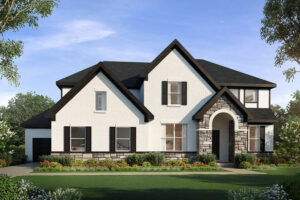
How to Get a Cincinnati Home Construction Loan: A Banker’s Inside Guide

Josh Blatt
• 11 min read




